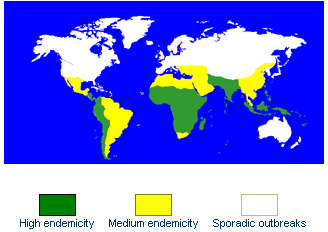The VSM Travel Clinic is open and if you need vaccinations for your travels we’re here to help. One of the vaccinations we offer is for protection against Typhoid.
Typhoid fever is prevalent in areas such as the Indian subcontinent, South America and parts of Asia and Africa.
What Causes Typhoid?
Typhoid comes from the bacterium Salmonella Typhi. It is spread if you eat or drink contaminated food or water. The bacteria then enters your bloodstream and goes into your intestinal tract.
What are the symptoms?
Symptoms include constipation or diarrhoea, headaches and fatigue. You may also have stomach pain, nausea and a high temperature. Your doctor will give you a blood test to confirm you have typhoid. You may also have a stool test and a urine test to see what strain of typhoid you have. It is important that the condition is treated quickly.
What is the treatment for typhoid?
If you get an early diagnosis of typhoid, your doctor will prescribe a course of antibiotics lasting between 7 and 14 days. It’s important to finish the full course of tablets, even though you might feel a lot better after 2 or 3 days.
While you’re not feeling well stay at home and rest. Drink plenty of liquids to stay hydrated and eat regular meals. Keep up a personal hygiene routine and make sure you wash your hands regularly as this will lower the risk of the disease spreading to other people.
Is there a chance I may need to go to hospital?
If you have a severe attack of typhoid, you may end up in hospital. It is more likely if you have continuous sickness, very bad diarrhoea or even a swollen stomach. The hospital will administer antibiotics through injections, and you may get your fluids through an intravenous drip.
You might be in hospital for several weeks, although you should begin to feel better within 3 to 5 days of starting antibiotic treatment.
Complications rarely occur. If they do it is because you didn’t get treatment immediately, or the antibiotics are resistant to the bacteria. You might suffer internal bleeding or a perforated stomach lining. Both these conditions are medical emergencies. You will either have a blood transfusion or an operation to stop internal bleeding or to repair the perforation.
What does it mean if I relapse?
Sometimes, around a week after your antibiotic treatment has finished your symptoms coud return. This is what is meant by a relapse. If you do relapse it is unlikely that you will feel as ill as the first time, and you should recover more quickly. You will probably need another course of antibiotics though.
Does typhoid stay in your body?
Some people become typhoid carriers. This means that the Salmonella typhi bacteria will live in your body for up to 12 months or more after the time you become infected. You won’t have any symptoms, but you can spread the disease through stools or urine. This means it is important for you to wash your hands after you have used the toilet. You should also avoid preparing or handling food.
A stool sample will confirm whether or not you still have the bacteria in your poo. If bacteria is still present it’s likely that you will have another course of antibiotics to get rid of the bacteria.
How can I protect myself against typhoid?
The best way to protect yourself is to have a typhoid vaccination. We offer this service here at VSM Pharmacy, through the Travel Clinic.
At your appointment, we’ll go through your travel plans with you and recommend the type of vaccinations you should have. The typhoid vaccination is either one injection which must be administered at least 2 weeks before travel. You can also have oral capsules. There are 3 capsules in a full course. The oral vaccine requires a booster after 3 years.
All you need to do is make an appointment with the Travel Clinic. You can do this online, by telephone (01276 21002) or by popping into the shop.




